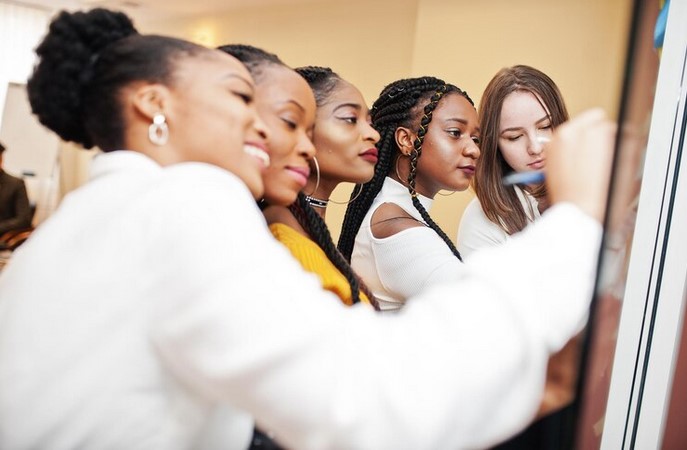The concept of “synergy” holds a unique significance in Universities and other institutions, where the people you associate with can significantly impact your academic results.
In this article, we’ll explore the importance of positive synergy in African universities and how it influences the path to success for students across the continent.
Table of Contents
Th concept of Synergy in African universities
Synergy in African universities is the cooperative association or energy of like-minded peers, influencing motivation, accountability, and grades.
It is the understanding that the individuals you surround yourself with can significantly influence not only your motivation and accountability but also your academic performance and overall grades.

Based on performances, synergy in African Universities can be; Positive or Negative if the academic performances is good or bad respectively.
The Power of Peer Groups
University life in Africa often centers around the formation of close-knit peer groups. In this setting, synergy refers to finding the right group that aligns with your academic goals and values.
Real-Life Example, Nguper’s Path to a First-Class Degree: Nguper, a determined student at an African university, made the choice to avoid negative peer influences. He made three friends on campus and they both studied together and avoided Night parties, went to religious and school related programmes only. They all graduated with first class degree.
Finding the right Synergy in African universities
In the dynamic landscape of African universities, discovering the right synergy is a critical step towards academic success. This process begins with proactive engagement and networking.
I carried out a personal research in Benue state university Makurdi, and discovered the following tips to help in finding the right synergy.
1. Networking and Extracurricular Activities

Make an effort to engage in extracurricular activities that align with your academic interests. Whether it’s joining a student club, participating in volunteer work, or attending academic events, these activities provide opportunities to connect with individuals who share your enthusiasm for learning.
2. Seek Like-Minded Peers
Identify and seek out students who share your commitment to academic excellence. These peers can be valuable allies on your academic journey. Connect with them in classes, study sessions, and group projects.
3. Mentors and Faculty Guidance
- Professors and mentors play a crucial role in helping you find the right synergy. Don’t hesitate to seek their guidance and build a professional relationship with them. They can offer valuable insights, recommend resources, and introduce you to academic circles that align with your goals.
4. Be Open to Diverse Perspectives
While it’s important to find like-minded individuals, it’s equally valuable to be open to diverse perspectives. African universities often embrace a rich tapestry of cultures and ideas. Embracing this diversity can broaden your horizons and lead to unexpected and enriching experiences.
5. Take a part time job if necessary
It is frequently observed that students from disadvantaged backgrounds may find themselves Negative synergies. This can occur when they associate with more affluent peers who may not prioritize academic pursuits.
If necessary, take a part time job to help sort out your bills on campus. As an African student I recommend these part time jobs;
- Writing and Blogging jobs: Explore freelancing in writing and blogging, graphic design, web development, or other skills you possess. You can even write about your field.
- Campus jobs:Universities often offer on-campus jobs in libraries, cleaning units, cafeterias, or administrative offices.
- Research Assistant: Assist professors or researchers with their projects and studies.
- Event Coordination: Help organize campus events, conferences, or local events.
- Retail or Customer Service: Work in retail stores or customer service positions.
Choose a job that aligns with your schedule, interests, and long-term career goals. Additionally, balance work with your academic commitments to ensure success in both areas.
Poverty’s Influence on Synergy
It’s essential to address the impact of poverty on synergy. In some cases, economic hardships can lead to negative synergy.
Students struggling with financial constraints may find it challenging to engage in extracurricular activities, create study groups, or attend events that can promote positive academic synergy. Overcoming these obstacles is essential for a well-rounded academic experience.
What to do
In African universities, addressing the influence of poverty on synergy requires a multi-pronged approach. This includes expanding access to scholarships and financial aid, creating mentorship programs, offering work-study opportunities, and providing academic support services.
International agencies such as the UNESCO, should continue empowering students with the resources they need to help them excel academically, regardless of their economic background. Students should also endeavor to take part time jobs.

Conclusion
In conclusion, synergy in African universities is a dynamic force that profoundly influences the academic journey of students on the continent. Surround yourself with like-minded individuals who share your commitment to academic excellence, and watch as your motivation, accountability, and overall academic performance soar.



